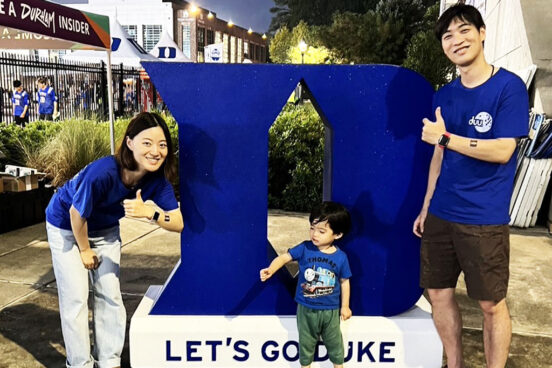Duke Daytime MBA Student Blog

Whatever the Case May Be
Many Fuqua first years express some amazement that their second-year course load, at least when viewed in advance, looks relatively modest compared to the imposing gauntlet of the first few terms. After their summer internships, however, they’re usually abruptly reminded that any time they save on course work is more than offset by increased responsibilities in club leadership. Nearly universally, though, they express only the most positive sentiments about this work: more so than academic work, it gives Fuqua students an opportunity to leave a perpetual mark on their school.
Whether explicit or not, each club, especially the occupational ones, has the goal of improving the Fuqua brand, and the Finance Club, of which I’m a member, is no different. In order for our members to continue to get jobs at the companies of their choices, those companies must respect the Fuqua brand, and the clubs are the best vehicle through which to ensure this. But with so many business schools with established, distinguished finance departments, how can Fuqua separate itself?
Collectively, we determined that a first-rate case competition in finance would help differentiate Fuqua students. It would give first years an opportunity, on our turf, to demonstrate their capabilities before heading into interviews for internships. It would test their mettle in a more casual setting, before the deluge of informational interviews.
However, pulling together a case study was more complicated than initially imagined. For judges, we needed to coordinate with busy investment bankers: we saw this as a way to increase exposure for our students, and a way to convince some recruiters to come to campus based on the quality of our first years. We needed other schools as competitors, which was a challenge unto itself: they have different schedules, and making travel arrangements requires some advance notice. And, most importantly, we needed a case that held Fuqua in a favorable light: this mandated that we recruit top finance and law professors from Duke to write a case that would not only have pedagogical value, but that would depict our students in a favorable light. And, we had to prepare to contribute to the case ourselves.
But a funny thing happened in the midst of all this apparent chaos. Stressful and time consuming though it may have been, it was also an exceptionally formative experience. The whole process demanded a ton of interaction with very different people, as well as meticulous attention to detail and time coordination. As with many things we pick up at Fuqua, this was probably as relevant to my future career as anything, but there’s no substitute: these are the skills that you can’t learn in any type of class. It was also enjoyable: clubs have a way of becoming pretty tight knit, even the finance club with its vast membership. I was able to work closely with a lot of people I might not have otherwise had the chance to get to know. However, the most meaningful takeaway from all of it may have been that there was satisfaction in being able to have contributed to the enduring brand of Fuqua. Even if its beginnings are modest, we hope that this competition becomes so prominent in years to come that more and more talented financial minds choose to come to Durham.



